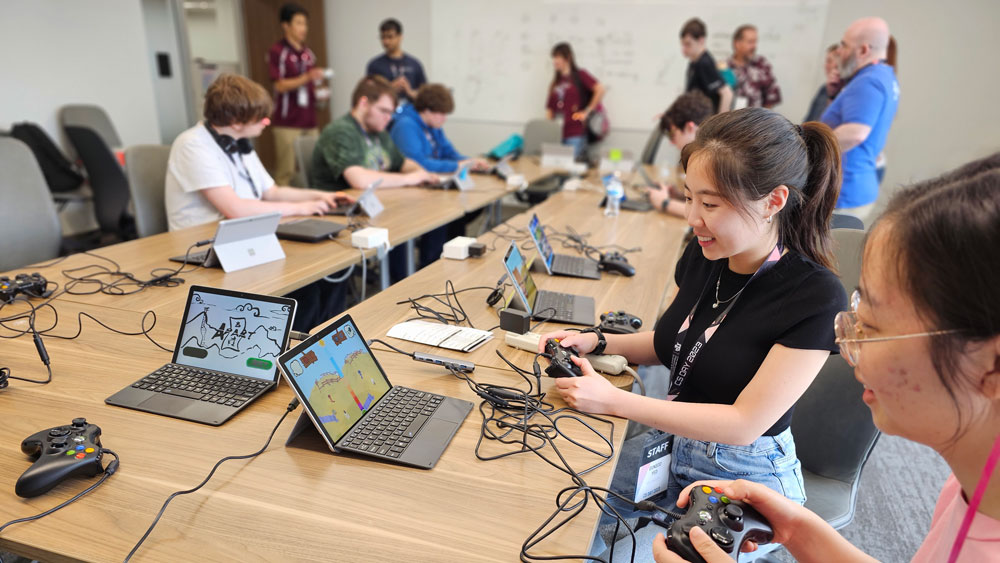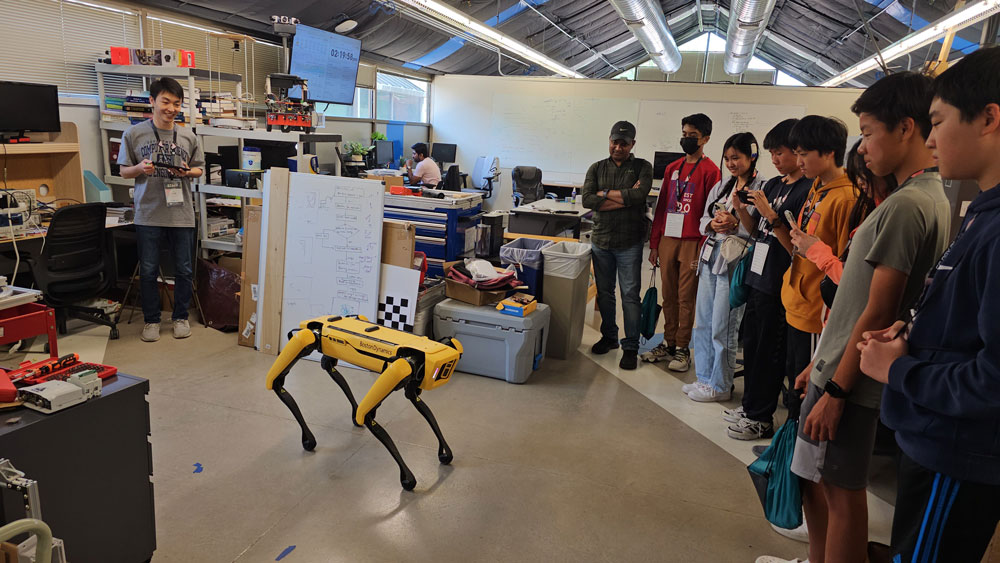
On April 1, the Department of Computer and Engineering at Texas A&M University hosted its first annual Computer Science Day outreach event.
Created and organized by the department's Diversity, Equity, Inclusion and Accessibility (DEIA) Committee, the single-day event allows middle-grade and high-school students to learn more about the field of computer science, take part in research experiences, interact with faculty members and students from the department, and learn about the benefits and career opportunities of studying computer science. Ninety-two students, parents and educators attended the inaugural event.
Attendees also took a tour of the Zachry Engineering Education Complex.
“Ultimately, we hope that these interactions will make students develop a passion for computer science, so they consider it a field of study and a career path to pursue,” said Dr. David Kebo Houngninou, instructional assistant professor in the department and member of the DEIA committee.
The day was kicked off by Dr. John E. Hurtado, interim vice chancellor and dean of engineering at Texas A&M, who welcomed the students, parents and educators in attendance. Department head Dr. Scott Schaefer also welcomed attendees and gave a short presentation emphasizing how influential and prevalent computing is in modern technology today and how it will continue to shape the future.

“Computing has changed the world, and it's going to continue to do so,” Schaefer said. “We're just seeing the beginning of what is possible and a decade from now, things are going to be completely different. So, this is just the beginning. It's an exciting time to be part of computing.”
Presentations throughout the day covered topics such as cybersecurity, human-centered artificial intelligence and how to protect yourself online from hackers. Former student Rebecca McFadden ’22, a software engineer at Mojang Studios, gave a presentation on what a day in her life as a software engineer looks like. Mojang Studios is a Swedish video game development company best known for developing the survival and sandbox game Minecraft.
There were also several hands-on and engaging demonstrations that students could participate in, such as playing video games made by computer science and engineering students and a robot petting zoo where they interacted with ground, aerial and marine robots used to assist first responders in the aftermath of a disaster.
“I would like to thank the Diversity, Equity, Inclusion and Accessibility Committee for initiating and organizing this event,” Kebo expressed. “And thanks to the department's leadership and staff, our student volunteers, faculty members and presenters that worked relentlessly to make this event a success.”